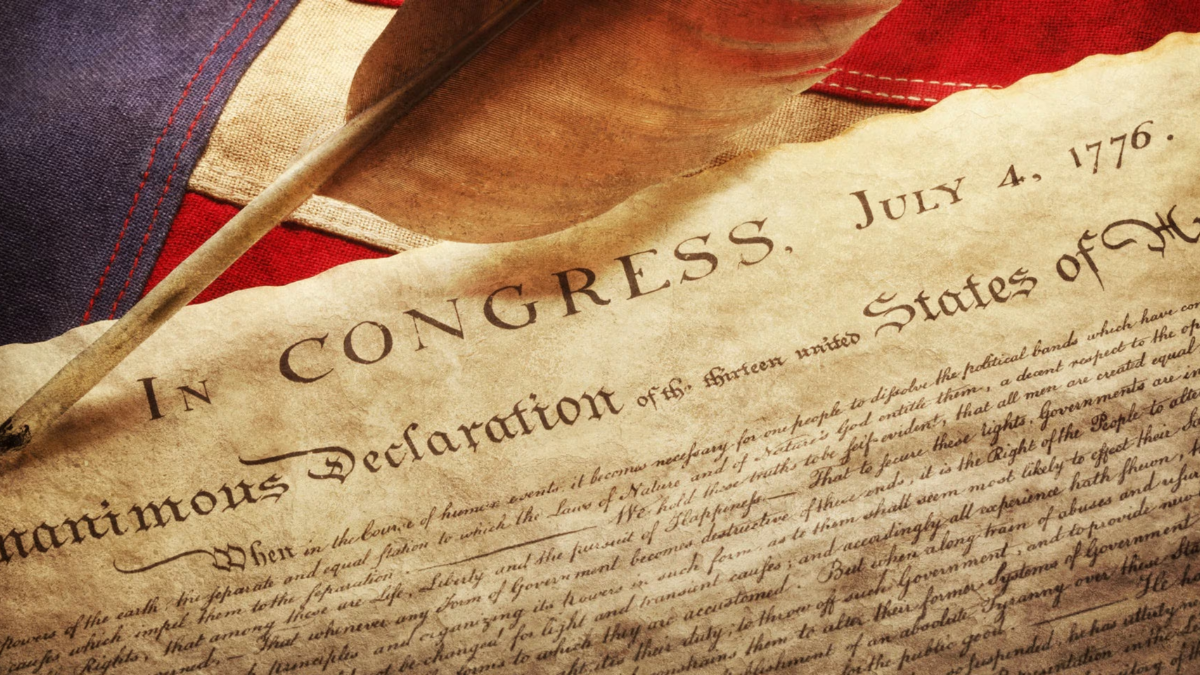The Holocaust and the Reality of Evil
Author: John Stonestreet and Dr. Timothy Padgett

Authors: John Stonestreet
When in the Course of human events, it becomes necessary for one people to dissolve the political bands which have connected them with another, and to assume among the powers of the earth, the separate and equal station to which the Laws of Nature and of Nature’s God entitle them, a decent respect to the opinions of mankind requires that they should declare the causes which impel them to the separation.
Thus begins the document, primarily authored by Thomas Jefferson but edited by a committee that also included John Adams and Benjamin Franklin, that officially gave birth to the United States of America. July 4 is known as the birthday of our nation because it was the day that The Declaration of Independence was officially adopted by The Continental Congress.
The Declaration’s most famous line is the next one, the first of “the causes” stated by Congress that, as they put it, “impel(led) them to separation.”
We hold these truths to be self-evident, that all men are created equal, that they are endowed by their Creator with certain unalienable Rights, that among these are Life, Liberty and the pursuit of Happiness.
The claim is remarkable, even more so when it was written and before it became overly familiar. It’s aspirational, an example of what made the newly formed United States an example of what the eminent sociologist Pitirim Sorokin would call “ideational.” Sorokin contrasted societies that were ideational, aimed at some higher metaphysical ideal, from those that were sensate, or oriented toward achieving immediate, often sensual, gratification.
Certainly, when the Declaration was signed, human equality was an unachieved ideal. From our nation’s “original sin” of slavery to the contemporary evil of abortion, recognized (much less realized) equality of persons has remained elusive throughout our history. And yet, the ideal itself set for our nation a trajectory that has brought us, in many ways, closer to it.
But is it self-evident that all men are equal? Based on what observation? The next time you are in a crowded room, take a minute to look at the people around you. Is the first thing that comes into your mind, “Hey, we are all alike?” If so, look again. The first things we notice are the differences, and rightly so.
Because if human beings are in fact equal, it must be grounded in some characteristic we all share. But there is no extrinsic characteristic that we all share. In that crowded room, you will notice that some are taller, some are older, some have disability, some have different shades of skin and slants of eyes. Some are faster, some are smarter, some are nicer.
If there is some characteristic that grounds human dignity and equality, it must be something intrinsic. The secular humanist philosopher Luc Ferry identified this characteristic in his book A Brief History of Thought:
Christianity was to introduce the notion that humanity was fundamentally identical, that men were equal in dignity—an unprecedented idea at the time, and one to which our world owes its entire democratic inheritance… This [idea of human equality] may seem self-evident, but it was literally unheard-of at the time, and it turned an entire world-order upside down.
Ferry then rightly notes that this “notion,” as he called it, emerged from the Christian doctrine that humans were created by God in His image. Put differently, the only possible reason to assume that “all men are created equal” is if they were “endowed by their Creator with certain unalienable rights . . .” In this way, the American Revolution was fundamentally different from other revolutions, like the French Revolution, that also claimed to be about “equality” but was grounded in something other than the purposes of the Creator.
To be clear, human equality and the recognition of universal human dignity are always ideals to strive for but will never be achieved this side of the New Creation. But without a Creator, specifically the Creator who made human beings in His image, those notions are meaningless, mere tools of power wielded by men who never plan to recognize them in others.
For the American revolutionaries, these notions were not only aspirations but inspirations which drove them to “mutually pledge to each other (their) Lives, (their) Fortunes, and (their) Sacred Honor.” They did not always live out this pledge with the moral integrity God requires. Nor do we. Thank God that the strength of the ideal itself, that God has created all people in His image and has endowed them with dignity and value from the moment of conception to the moment of natural death, is that it is True. And that’s why it changed the world.

Author: John Stonestreet and Dr. Timothy Padgett

Authors: John Stonestreet and Dr. Timothy Padgett

Authors: John Stonestreet and Dr. Thaddeus Williams